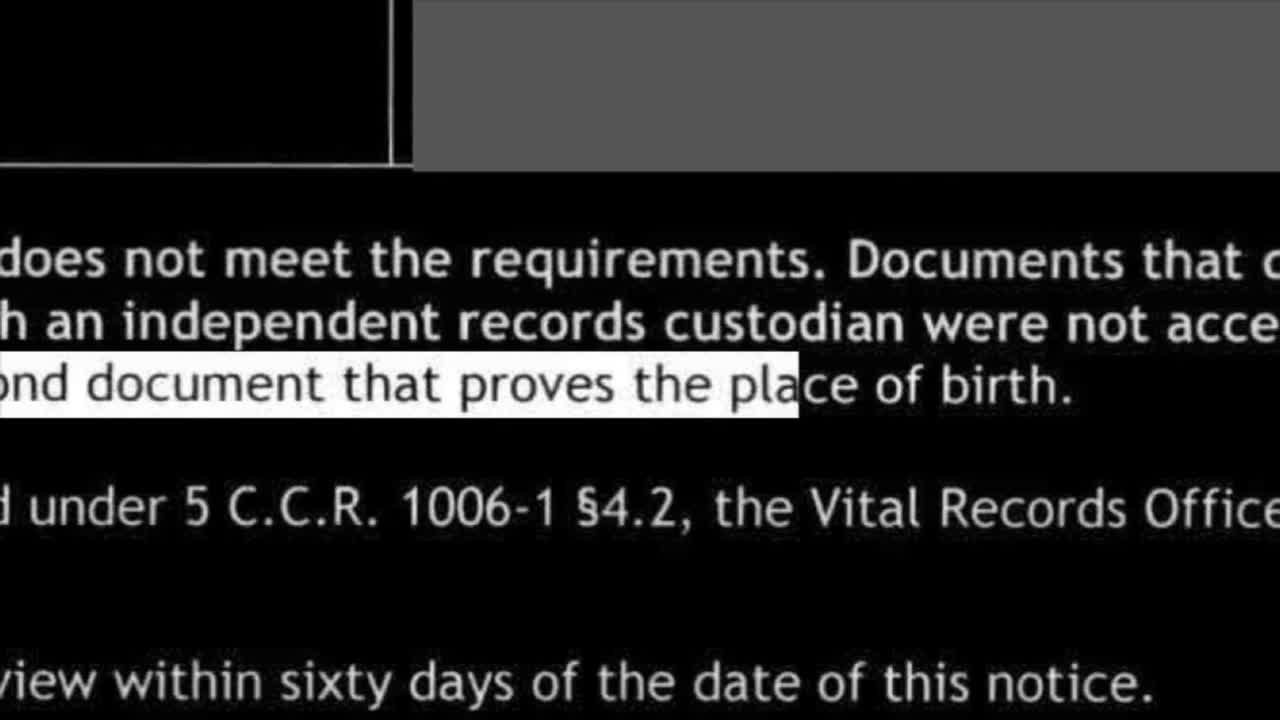DENVER – Colorado’s “ghosts” — people born here but denied a birth certificate under the state’s strict delayed birth rules — could see relief under a proposed “major change” following Scripps News Group Investigative reporting.
Dr. Ned Calonge, the chief medical officer for the Colorado Department of Public Health and Environment (CDPHE), confirmed the agency is preparing to take a proposed rule change to the Board of Health in December, with a possible vote in February.
“We’re looking at our birth certificate rules to make sure we’re not creating undue barriers — and at the same time, protecting against fraud," said Calonge.
From ‘invisible' to under review
In September, our sister station Denver7 shared the story of Abigail Colón, a Colorado native who said, “It’s like I exist, but I don’t exist.” Her birth was documented in a family Bible after a midwife delivery in Woodland Park — but not by the state.
CDPHE denied her delayed birth certificate request because she had no accepted records from before her 10th birthday, even though all three of her brothers obtained certificates in other states where judges can decide such cases.
Casey Sherman, a supervising attorney at Colorado Legal Services, called Colorado’s policy “the strictest delayed birth certificate law in the country without question.”
Following that reporting, CDPHE said it began reviewing delayed birth certificate rules alongside other states’ policies, as part of a broader rulemaking process already scheduled due to legislative changes.
The numbers behind the rules
According to Calonge, since January 2024, CDPHE has received 102 applications for delayed birth certificates.
- Approved: 52
- Still in process: 36
- Dismissed/Denied: 14
Of those 14 denials:
- 6 cases — missed the one‑year deadline to provide all required documents
- 4 cases — incomplete applications, missing ID or payment
- 3 cases — proof showed the applicant was born in another state
- 1 case — other reason
Calonge said in the last year, “we’ve had three people apply where we could prove they were born in another state,” adding that applicants cannot have two birth certificates issued in different states.
Denver7 obtained and reviewed those 14 denial letters from January 2024 through July 2025. The majority — 64 percent — were denied due to documentation gaps, including missing a second accepted document that proved Colorado birthplace.
What could change — and what won’t
Currently, at least one required document must have been created before an applicant’s 10th birthday. The proposed rule would instead require that one document be at least 10 years old — a change Calonge said could help people without early official records while maintaining fraud protections.
“It is not our intent to deny a birth certificate to any person who legitimately deserves one,” Calonge said. “We have great sympathy for any issues this brings up for any given individual, and we want to make sure we do this in the right way.”
Calonge noted that Colorado’s statute does not permit judicial review for delayed birth certificate applications, and that only the legislature could change that.
Advocates say draft still falls short
Colorado Legal Services, which currently has 20 active delayed birth certificate cases, confirmed that CDPHE invited them to provide stakeholder comment on the proposed rule.
In a statement, Sherman said they welcome the opportunity but remain concerned.
“We are grateful that CDPHE invited us and stakeholders like us to comment on their plan to revise the rule. We are looking forward to being part of this process to create an equitable rule for our client and others in similar circumstances that affirms their constitutional rights,” Sherman said. “The version of the proposed rule… would require that any document besides an affidavit be at least 10 years old, or be established before an applicant’s 10th birthday. This would still be the strictest regulation in the country and not fully resolve the constitutional and practical issues with the current rule.”
Sherman said her team will provide written feedback and “look forward to working with the agency to continue to improve the proposal along with other stakeholders.”
What’s next:
CDPHE plans to present the proposed change to the Board of Health in December, with a possible vote in February. Abigail Colón’s case is scheduled for oral argument in the Colorado Court of Appeals on Jan. 7. Denver7 Investigates will continue to follow both the policy process and her personal fight for a birth certificate.




